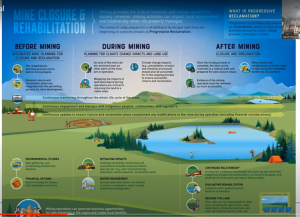 An integrated view of the physical, social and economic impacts of mine sites is what’s needed if we are to truly understand the long-term success of our mine site rehabilitation efforts, according to Associate Professor Gavin Mudd from RMIT University.
An integrated view of the physical, social and economic impacts of mine sites is what’s needed if we are to truly understand the long-term success of our mine site rehabilitation efforts, according to Associate Professor Gavin Mudd from RMIT University.
In our most recent HydroTerra Webinar in the series, Gavin called on us all to “Think big and act long term”. He said that to maintain our supply of critical minerals and metals we must reduce the all-too-often devastating impacts that come from mismanagement.
So often we approach things in a scientific reductionist way by only monitoring the usual things, such as surface water, groundwater, flora, fauna, erosion, stability, pollutants, etc. While sometimes we explore other issues associated with mine site closure, such as economic impacts and the interests of indigenous communities, we don’t take all of these impacts into account in a consistent way.
What we really should be doing, he said, is integrating across these areas to achieve a holistic understanding of rehabilitation success. There is a real need to explore new systems for monitoring, data reporting, and assessment of rehabilitation success.
The reality is, that there are so few examples of fully rehabilitated modern mines that the database of such sites is limited. And unfortunately, many of these sites show ongoing issues.
If we want both success and community buy-in, we need to better monitor and assess mine rehabilitation – for the long-term, not just a few years.
HydroTerra runs regular webinars with the purpose of sharing knowledge, facilitating education, and supporting our industry. You can catch up on this webinar here:
Rehabilitating mine sites webinar





